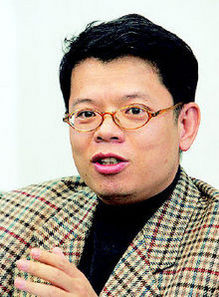 |
|
Lee Il-yeong, Professor of Economics, Hanshin University
|
Lee Il-yeong, Professor of Economics, Hanshin University
The government looks set to push ahead with a South Korea-U.S. free trade agreement (FTA), currently making the rounds of negotiation. However, the nation needs to take drastic measures to curb the effect of reverse income distribution caused by an open economy, which would be compounded by an FTA between the two allies. Regarding this, the ruling Uri Party has said that the nation should consider an option of becoming a ’big Netherlands or Sweden,’ rather than a small America." But these are not options, given the realities of South Korea. Models of advanced welfare nations are divided into three rough categories: that of the U.S. and Britain, that of continental Europe, and that of northern Europe. The northern European model, whose center is Sweden, makes its goal full access to social security benefits and aims at a perfect employment rate. Nations under this kind of welfare system have advanced social services such as promotion of employment, state-funded medical care and child care services, and subsidized housing and education, but their economies have problems with financial stability. It is possible for Sweden to link various institutions and policies in the public sector into a large, organized, single system due to the nation’s particular circumstances, including its abundant resources and small population. The Swedish system is not something any nation can easily imitate. South Korea and Sweden are just too far apart. In terms of the ratio of social spending in terms of GDP (gross domestic product), Sweden recorded 28.9 percent in 2001, compared to South Korea’s 6.1 percent. The United States, known for its relatively low welfare spending, posted 14.8 percent. The ratio of taxation and redistribution in terms of income in Korea is a fifth of the redistribution seen in the U.S. and a 15th of what Sweden redistributes. Moreover, Korea faces limitations in expanding its financial resources. The nation’s average per capita tax burden was 19.5 percent in 2004, compared to 18.7 percent of the U.S. and 15.6 percent of Japan. Moreover, South Korea has the unique additional burden of having to prepare financially for South-North reunification. But choosing between being a ’small America’ or a ’big Sweden’ misses the point. Just as all roads don’t lead to the U.S., all roads don’t lead to Sweden, either. South Korea cannot help but walking a road of its own.At present, Korea’s financial situation is not only relatively but absolutely insufficient in order to reform its distribution system. A bigger problem, however, is the nation’s current lack in capability of providing for the public sector. It is a worldwide trend to decentralize, localize, and privatize welfare services. But before this is possible, the central government of South Korea needs to first establish a strong welfare system. It should do so at the local level, in collaboration with provincial governments. Korea should learn from Sweden that the northern European nation’s universal welfare policies were created against a background of a sense of crisis related to population issues and the nation’s strategically mobilized support of farmers. In contrast, South Korea’s agricultural sector cannot find a way out of its current problems due to international competition and labor-related crises within management. Korea needs to install societal safeguards first; that is to say, we should establish a welfare system in the rural farming regions first, using the current crisis in agriculture as a springboard. This would in turn serve as an important litmus test for future welfare strategies. Another important task for a Korea-model welfare strategy is to think highly of moderate and communal values. Former progressive governments of the United States and Britain, when trying to push for redistributive policies, saw the voters divide into two extreme camps; thus, neoliberalist policies could not be fully realized. In Sweden, the labor movement played a significant role, but some observers stressed the influence of Catholic, conservative, and liberal forces together. South Korea has witnessed impassioned and often violent labor and social movements, but it has failed to expand and develop progressive values. The progressive forces will have no future if they are absorbed with defending themselves. It is time for South Korea to concentrate its efforts on establishing a nationwide vision of welfare.





